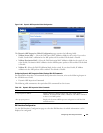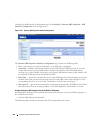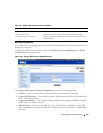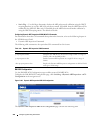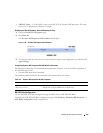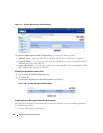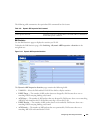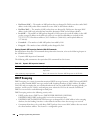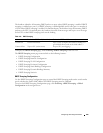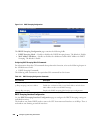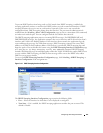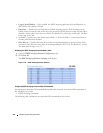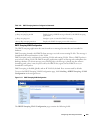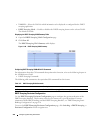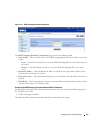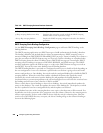
Configuring Switching Information 449
The hardware identifies all incoming DHCP packets on ports where DHCP snooping is enabled. DHCP
snooping is enabled on a port if (a) DHCP snooping is enabled globally, and (b) the port is a member of
a VLAN where DHCP snooping is enabled. On untrusted ports, the hardware traps all incoming DHCP
packets to the CPU. On trusted ports, the hardware forwards client messages and copies server messages
to the CPU so that DHCP snooping can learn the binding.
To display the DHCP Snooping page, click Switching
→
DHCP Snooping in the tree view.
The DHCP Snooping menu page contains links to the following features:
• DHCP Snooping Configuration
• DHCP Snooping Interface Configuration
• DHCP Snooping VLAN Configuration
• DHCP Snooping Persistent Configuration
• DHCP Snooping Static Bindings Configuration
• DHCP Snooping Dynamic Bindings Summary
• DHCP Snooping Statistics
DHCP Snooping Configuration
Use the DHCP Snooping Configuration page to control the DHCP Snooping mode on the switch and to
specify whether the sender MAC Address for DHCP Snooping must be validated.
To access the DHCP Snooping Configuration page, click Switching
→
DHCP Snooping
→
Global
Configuration in the navigation tree.
Table 7-64. DHCP Snooping
Destination UDP Port 67 (from client) Destination UDP Port 68 (from server)
Trusted Port Forward in hardware Copy to CPU (Complete the tentative binding for a
given DHCP client, based on the MAC address.)
Untrusted Port Trap to CPU (enforcement) Trap to CPU (error logging)



